New year diets: your need-to-know guide
Maintaining healthy eating habits during lockdown can be a struggle - but it can be done
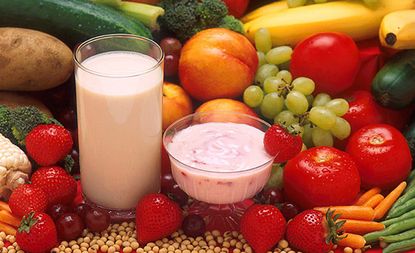
The post-Christmas push to begin the new year with a healthier lifestyle has become a traditional conclusion to the festive season among people the world over.
But with England facing strict new Covid rules following the holiday this year, the prospect of sticking to a balanced eating plan and exercise regime may feel daunting.
A survey by OnePoll back in May, during the first nationwide lockdown, found that a third of the 2,000 adults quizzed had piled on the pounds following the introduction of the restrictions, while overall physical activity had fallen by a quarter, as The Independent reported at the time.
Subscribe to The Week
Escape your echo chamber. Get the facts behind the news, plus analysis from multiple perspectives.

Sign up for The Week's Free Newsletters
From our morning news briefing to a weekly Good News Newsletter, get the best of The Week delivered directly to your inbox.
From our morning news briefing to a weekly Good News Newsletter, get the best of The Week delivered directly to your inbox.
Successfully maintaining a healthier lifestyle is possible even in these difficult times, however, if you find the right diet for you. Here, we explore your options.
DASH, MIND and Mediterranean diet
Latest rankings by health experts for the US News & World Report put the Mediterranean and DASH diets at the top of the list of a total of 35 popular eating plans.
The DASH diet was originally designed to help people lower their high blood pressure. It is characterised by a mix of fruits, vegetables, whole grains, lean protein and low-fat dairy, while encouraging people to avoid saturated fats, sweets, and to eat less salt overall. Each serving is small; for example, 1oz (28g) of meat or 1 teaspoon of vegetable oil, and sodium is capped at around half a teaspoon.
“Studies show that the diet, particularly when accompanied by exercise, reduces weight and blood pressure,” says The Guardian, and what is more “the experts say it is easy to follow and you will feel full on it”.
A mixture of the two, the MIND diet is supposed to protect the brain and prevent Alzheimer’s, though those claims have not been fully researched.
Dukan diet
The Dukan diet is a low-carb, high-protein diet, with no limit to how much you can eat during the plan’s four phases, so long as you stick to the rules.
During phase one, you’re on a strict lean protein diet lasting an average of five days to achieve quick weight loss. The next three phases of the plan see the gradual introduction of some fruit, veg and carbohydrates, and eventually all foods.
The target is weight loss of up to 2lb a week, as well as the promotion of long-term weight management. However, the NHS says that at the beginning of the diet, you may experience “bad breath, a dry mouth, tiredness, dizziness, insomnia and nausea” owing to the sudden lack of carbs.
Paleo diet
The paleo diet – also known as the caveman diet or stone-age diet – revolves around abstention from processed and overly sugary food, in favour of the kind of diet our paleolithic ancestors would have had, thousands of years ago, focusing on meat, fish, vegetables and fruit.
Dairy, cereal grains, legumes and salt are out, but nuts and seeds, eggs and certain oils are in. Proponents claim it minimises the risk of chronic disease, improves health and helps dieters lose weight.
However, Lucy Jones, a spokeswoman for the British Dietetic Association (BDA), has previously told The Telegraph that “there isn’t any proof that it improves health, and its demand that you exclude food groups essential to health – such as dairy, grains and legumes – could leave people seriously deficient in essential vitamins and calcium, not to mention constipated from the lack of dietary fibre”.
New Atkins diet
The famed 1990s Atkins diet was reinvented six years ago by three American doctors and the high-protein, low-carbohydrate plan has found a new following in its slightly more forgiving form.
There’s a wider range of foods allowed and a daily carbohydrate limit of 20g, which rises as the weeks go by. Kim Kardashian reportedly used the steak-heavy diet for her post-baby weight loss.
It’s a quick way to shed pounds, but the BDA points to an increased risk of heart disease, and the American Heart Association also has concerns about its impact on the kidneys, bones and liver.
Alkaline diet
Our bodies have too much acid, and that excess turns to fat – so goes the theory behind the alkaline diet, which has the requisite stream of celebrity fans. This plan wants you to swap acidic foods such as meat, wheat, dairy and caffeine for “alkaline” foods that cut the body’s acid levels – in practice, lots of fruit and vegetables.
The problem is that the body automatically regulates your pH balance. No matter what you eat, your blood acid levels will remain the same, say experts. Critics explain that the weight lost on the plan is often due simply to eating fruit and veg while cutting down on sugar, alcohol and processed foods – which is recommended by health guidelines anyway.
5:2 diet
The 5:2 diet – based on the theory of intermittent fasting – has gained popularity, not least because it allows you to eat fairly normally most of the time. For two days a week, followers eat 25% of their calorie needs, and for the remaining five days they are not restricted.
That said, it doesn’t mean you can pig out the rest of the week – the 5:2 theory is that the fasting period makes you more aware of what you’re eating on non-restricted days, too.
The diet can help reduce fat and insulin resistance, and some followers claim it cuts the risk of heart disease and helps brain function. But a 2016 study by Australian researchers found that adherents lost just as much weight on a calorie-controlled diet and felt less hungry.
So what is a good diet?
The BDA recommends eating a variety of foods, including five fruits or vegetables a day, plus starchy carbohydrates, proteins and dairy or alternatives.
Try to cut down on foods and drinks that contain high levels of sugar and fat – such as sweets, cakes, crisps and sugary beverages – and use a lower amount of oils and spreads. But don’t get rid of any of the five food groups (carbohydrates, protein, dairy, fruit and veg, and fats) entirely.
If you eat meat, stick to the UK average of 70g per day – that’s equivalent to about three slices of ham.
The NHS also says that a healthy diet is achievable through abstention from meat – adding that five portions of fruit and veg, as well as meals based around carbs such as potatoes, bread, rice or pasta, can make veganism a healthy lifestyle choice.
If you are interested in plant-based eating, you may want to watch The Game Changers on Netflix, which follows the success of a number of elite athletes and sportsmen on plant-based diets.
Create an account with the same email registered to your subscription to unlock access.
Sign up for Today's Best Articles in your inbox
A free daily email with the biggest news stories of the day – and the best features from TheWeek.com
-
 'Republicans want to silence Israel's opponents'
'Republicans want to silence Israel's opponents'Instant Opinion Opinion, comment and editorials of the day
By Harold Maass, The Week US Published
-
 Poland, Germany nab alleged anti-Ukraine spies
Poland, Germany nab alleged anti-Ukraine spiesSpeed Read A man was arrested over a supposed Russian plot to kill Ukrainian President Zelenskyy
By Peter Weber, The Week US Published
-
 Today's political cartoons - April 19, 2024
Today's political cartoons - April 19, 2024Cartoons Friday's cartoons - priority delivery, USPS on fire, and more
By The Week US Published
-
 Pros and cons of microwaves
Pros and cons of microwavesPros and Cons The kitchen gadgets are convenient but one chef called them ‘world’s worst invention’
By The Week Staff Published
-
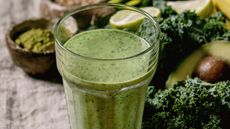 Juice cleanses: what are the benefits and are they dangerous?
Juice cleanses: what are the benefits and are they dangerous?feature Many are looking to start 2023 with the mantra of ‘out with the old and in with the OJ’
By Jamie Timson Published
-
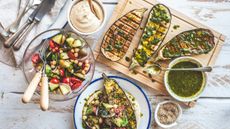 Pros and cons of a vegetarian diet
Pros and cons of a vegetarian dietPros and Cons Studies show 41% of British families are currently following a meat-free or ‘flexitarian’ diet
By The Week Staff Published
-
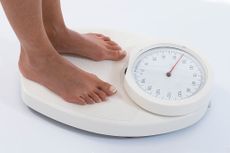 How scientists discovered that one-size diets don’t fit all
How scientists discovered that one-size diets don’t fit allfeature Research on blood sugar levels suggests that what constitutes a healthy diet depends on who is eating it
By The Week Staff Published
-
 The five most promising methods to extend human life
The five most promising methods to extend human lifefeature Latest research findings on biology of ageing have revealed secrets to living longer, healthier lives
By The Week Staff Published
-
 Weight-loss gadget compared to ‘medieval torture device’
Weight-loss gadget compared to ‘medieval torture device’feature And other stories from the stranger side of life
By Chas Newkey-Burden Published
-
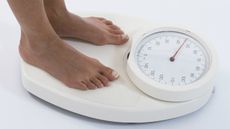 Which countries have gained the most weight in lockdown?
Which countries have gained the most weight in lockdown?In Depth Almost half of Brits report piling on pounds since March
By Arion McNicoll Last updated
-
 Fasting: A fast way to good health?
Fasting: A fast way to good health?Speed Read Raimund Wilhelmi, the grandson of Dr Otto Buchinger, explains how his grandfather's fasting techniques can offer surprising health benefits
By Raimund Wilhelmi Published